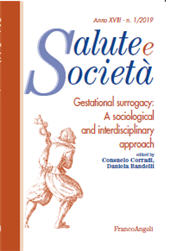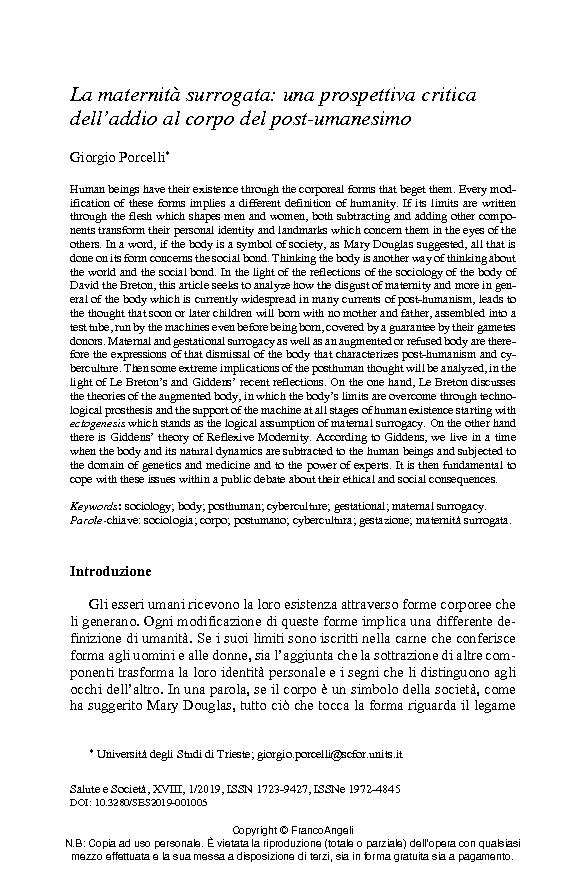La maternità surrogata : una prospettiva critica dell'addio al corpo del post-umanesimo
60-81 p.
Human beings have their existence through the corporeal forms that beget them. Every modification of these forms implies a different definition of humanity. If its limits are written through the flesh which shapes men and women, both subtracting and adding other components transform their personal identity and landmarks which concern them in the eyes of the others. In a word, if the body is a symbol of society, as Mary Douglas suggested, all that is done on its form concerns the social bond. Thinking the body is another way of thinking about the world and the social bond. In the light of the reflections of the sociology of the body of David the Breton, this article seeks to analyze how the disgust of maternity and more in general of the body which is currently widespread in many currents of post-humanism, leads to the thought that soon or later children will born with no mother and father, assembled into a test tube, run by the machines even before being born, covered by a guarantee by their gametes donors.
Maternal and gestational surrogacy as well as an augmented or refused body are therefore the expressions of that dismissal of the body that characterizes post-humanism and cyberculture. Then some extreme implications of the posthuman thought will be analyzed, in the light of Le Breton's and Giddens' recent reflections. On the one hand, Le Breton discusses the theories of the augmented body, in which the body's limits are overcome through technological prosthesis and the support of the machine at all stages of human existence starting with ectogenesis which stands as the logical assumption of maternal surrogacy. On the other hand there is Giddens' theory of Reflexive Modernity. According to Giddens, we live in a time when the body and its natural dynamics are subtracted to the human beings and subjected to the domain of genetics and medicine and to the power of experts. It is then fundamental to cope with these issues within a public debate about their ethical and social consequences. [Publisher's text].
Fait partie de
Salute e società : XVIII, 1, 2019-
Articles du même numéro (disponibles individuellement)
-
Informations
Code DOI : 10.3280/SES2019-001005
ISSN: 1972-4845
DISCIPLINES
KEYWORDS
- Sociologia, corpo, postumano, cybercultura, gestazione, maternità surrogata
- Sociology, body, posthuman, cyberculture, gestational, maternal surrogacy



